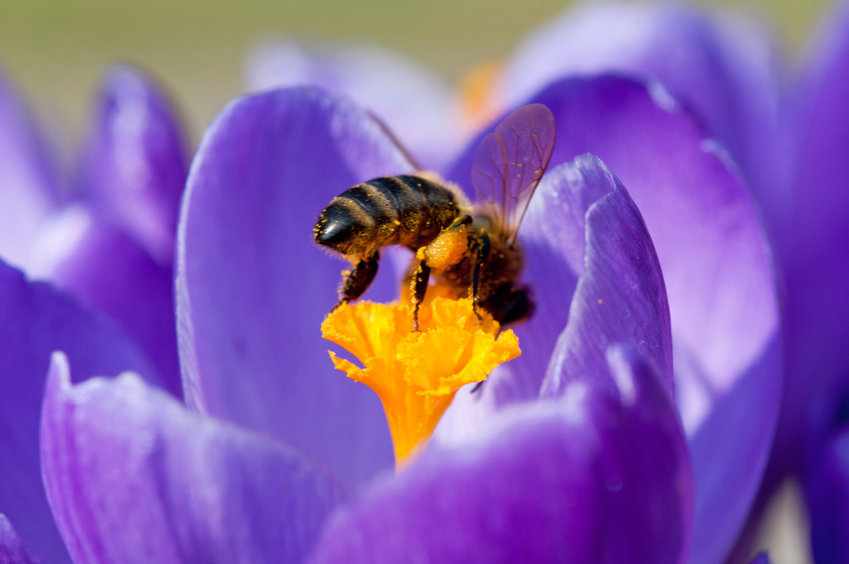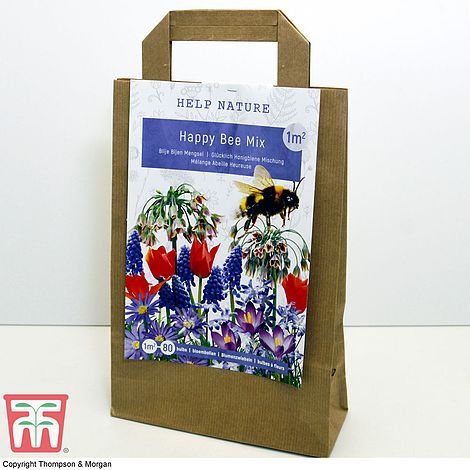You may have heard many people talk of how important it is to preserve our population of bees, but why? Well, nearly 85% of food crops for humans are pollinated by bees. Many cattle fodder crops are also pollinated by bees. The plants they pollinate also create food and shelter for other wildlife. It is said that if all bees were to die, humans could only survive for four years. The nectar from our garden plants provides bees with the energy to survive, and bee grubs could not grow without the pollen that plants provide.
Many bee species can benefit from a wide range of plants in our gardens. Try to provide plants that flower at different times to keep supplies for the bees going throughout the year. Single flowered and flat flowered plants provide the ideal landing pad for our bees to access nectar and pollen. Purple flowers are a great draw to bees as they can detect this colour better than other shades. Tubular blooms are great for long tongued bees like bumble bees.
So why are the spring bulbs so important? Bumblebees emerging from hibernation are at risk of dying without the early source of food which is provided by our spring bulbs.
The British Beekeepers Association say:-
“You can help the bees, all the bees, honey bees, bumblebees and solitary bees, by planting more flowers for them to feed on. It doesn’t matter if your garden is a balcony, allotment, window box, pots and tubs or a swathe of green open space; with a bit of thought pollinators can benefit from a banquet of pollen and nectar right throughout the year.”
But you don’t have to spend time researching the best spring bulbs to help the bees. The British Beekeepers Association have put together a collection of nectar-rich spring bulbs for you to plant this autumn to help you nurture the nature in your garden, which benefits us all. Each Happy Bee collection will cover an area of around one square metre.
To view this collection at Thompson & Morgan click here
Mark Snelling
Images copyright Gardenforpleasure.co.uk and Thompson & Morgan
If you have enjoyed reading our blog post then why not fill in the form provided to allow us to send you our blog posts and newsletters by email.


